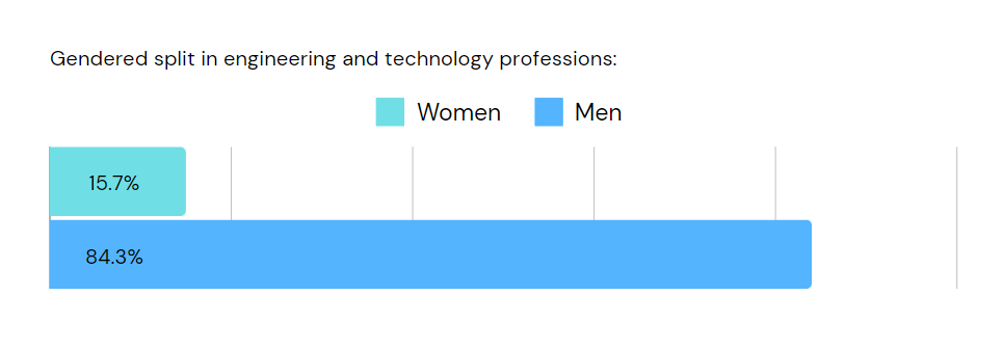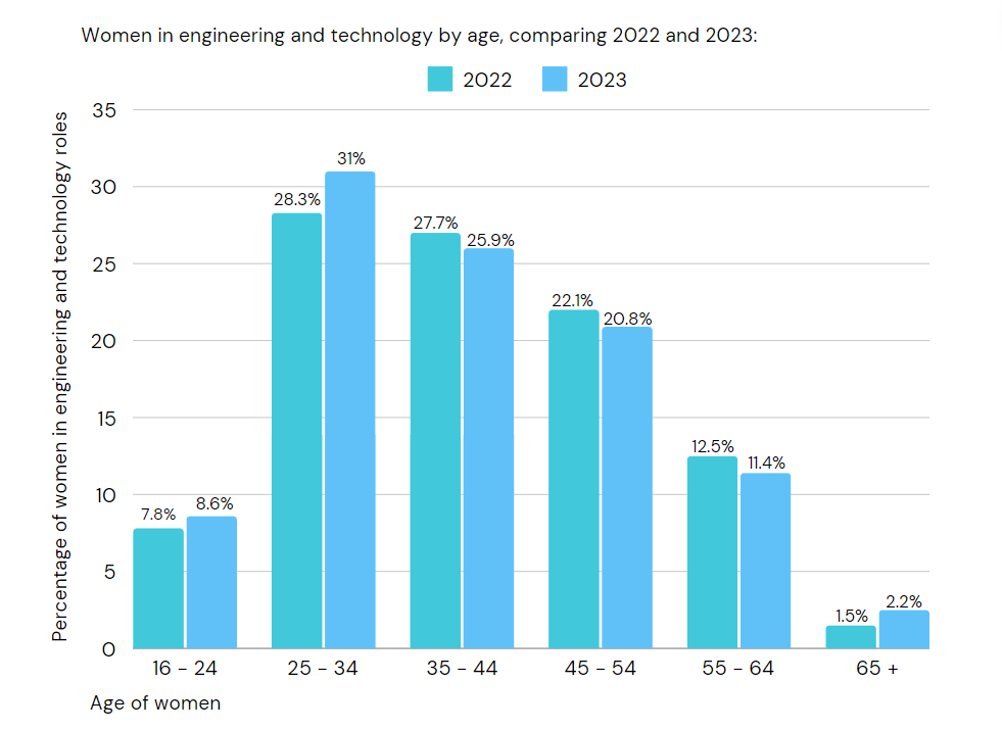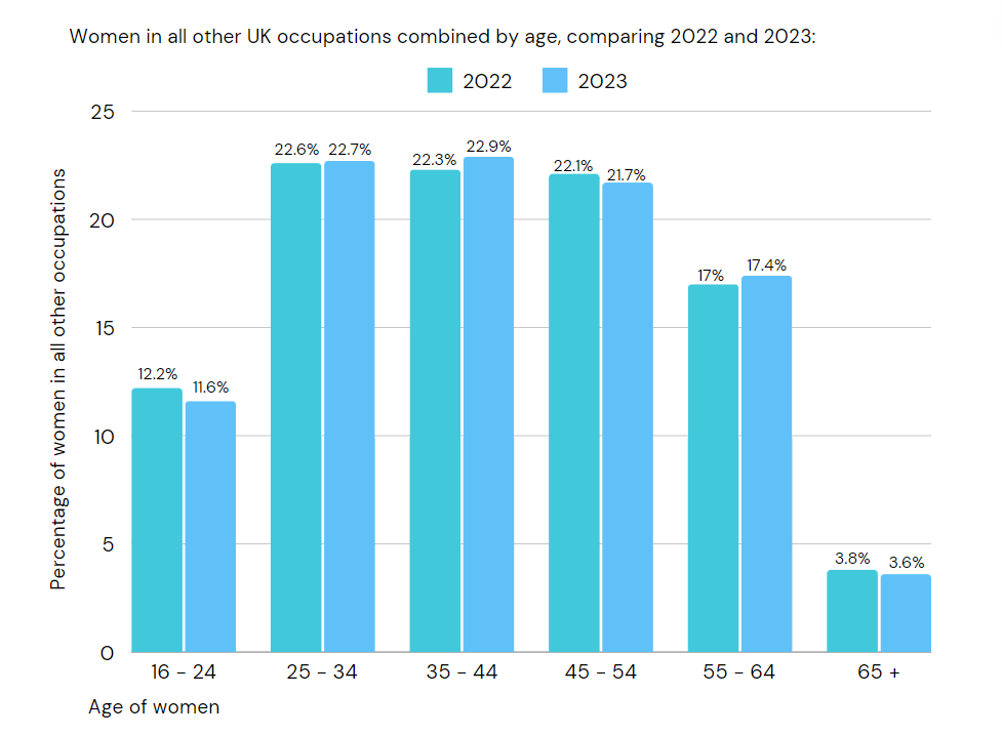EngineeringUK analyses data on the engineering and technology workforce every year, and the most recent analysis has found that women in these roles has declined from 16.5 per cent to 15.7 per cent in the last year, representing a decrease of 38,000 women.
This is despite the overall proportion of engineering and technology occupations within the UK workforce remaining consistent at 19.2 per cent.
In stark comparison, women made up over half (56.1 per cent) of all other occupations combined. Analysis of the wider UK workforce does not show a similar drop or pattern of women leaving these other professions.

With this, EngineeringUK analysed the age of women in engineering and technology occupations compared to all other occupations for 2022 and 2023.
The research found that compared to 2022, there were around 22,000 more women working in engineering and technology occupations in the 16-24 and 25-34 age groups, but 66,000 fewer women working in those occupations between the ages of 35 and 64 years.
Specifically, the largest decrease was found for women aged 35 to 44, with a decline of 29,000.

EngineeringUK said that this indicates that more women are entering the workforce straight from education and training, but that retention is an issue.
In contrast to engineering and technology, the proportion of women from all other occupations combined was found to be relatively consistent across the two years, with no observable drop in women between the ages of 35 and 64 years.

In a statement, EngineeringUK chief executive Hilary Leevers, said: “We are taking this small but significant decline very seriously. Behind the percentages, are professional women with real lives and careers.
“The sector as a whole needs to better understand why women are leaving and work harder to improve their retention, including creating opportunities for those who have left the profession to return. The various government skills taskforces must also ensure retention is core to the strategies they are working on.”
EngineeringUK said that it hopes this research will serve as a wake-up call to engineering and technology companies to improve recruitment and retention practice, and approach organisations like WISE, WES , Equal Engineers and the Royal Academy of Engineering who can all support women and businesses with inclusion and equity in the profession.
Visit our jobs site https://jobs.theengineer.co.uk/ to find out about some of the latest career opportunities at industry's biggest employers.











McMurtry Spéirling defies gravity using fan downforce
Ground effect fans were banned from competitive motorsport from the end of the 1978 season following the introduction of Gordon Murray's Brabham...